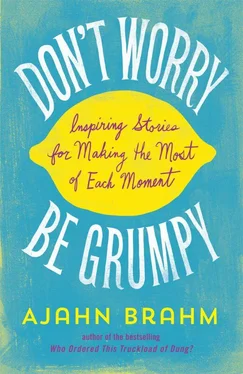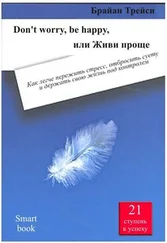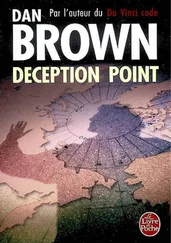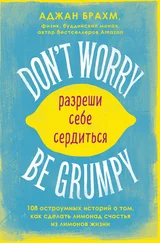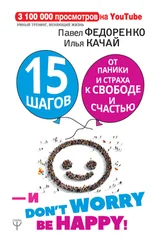When I was a student, and my hair was much, much longer than it is today, I also took odd jobs during the university holidays to make ends meet. One such job was selling children’s encyclopedias door to door.
First I had to learn the marketing pitch. It was a short speech that I had to memorize, which argued persuasively that not to purchase this amazing source of knowledge would be to deny a proper education to your dear child. I was instructed to use psychological pressure to make the parents feel almost as guilty as child abusers if they irresponsibly chose not buy this magnificent set of educational books.
Such a hard sell was immoral. I knew it. But I was young and desperate.
The first day, I sold a set to this sweet young couple who had recently moved in to a new house with their two very young children. That night I did not sleep well at all. I kept thinking of those young parents saddled with another bill to pay because I sold them this stupid, rubbish encyclopedia. I felt so guilty that I resigned the next morning.
For many years I felt very remorseful over that sale. Later, as a monk, I learned to forgive myself and let it go. After all, I was so immature in my long-haired days.
I once mentioned this anecdote in a Friday night talk in Perth as an example of forgiveness. Afterward, a young woman in her late twenties came to talk with me.
“You may not believe me, but this is absolutely true!” she began. “When I was a very young girl growing up in London, a young long-haired student came to our house and sold my Mum and Dad this children’s encyclopedia. I simply loved those books!” she enthused. “They were my favorite books of all. It may not have been you, but thank you so much anyway.” For once I was speechless.
The way I now understand how this universe works, I am pretty sure that it was I who sold her parents those books.
The Sad Saga of the Suicidal Spider
A young, happy spider found the perfect corner in a quiet room in which to build her first home. Joyfully she spun and wove a beautiful web, artistic enough to be featured in Spiderworld’s Home and Garden . Exhausted but proud of her efforts, the young spider rested in the center of her web, waiting for lunch.
An elderly woman entered the room, and on seeing the spider, she screamed so loud even her half-deaf husband heard it. On seeing the cause of her distress, the husband quickly smashed the spider’s first home to smithereens. The spider was lucky to escape with her life.
Rattled but undaunted, the spider crawled to another house and built a second home, this time not as aesthetic as her first web, but comely enough. Before the spider’s first meal arrived by air, a maid spotted the web and destroyed it with her broom. Again the poor spider fled for her life.
The same thing happened in the next house, and the next, and the next one after that. After her sixth web was violently destroyed, the poor little spider understandably began to suffer the symptoms of posttraumatic stress disorder. She became paranoid of corners, too anxious to spin any more webs.
As she crawled tired and hungry along the road, she became lost in negative thoughts: “No one likes me. All I want is a quiet home somewhere. I won’t harm anyone; I just want to catch flies and bugs. They don’t want the bugs anyway. Life is so unfair. I’m hungry. I’m tired. I feel so… so alone.”
Then the little spider began to cry.
Soon her thoughts turned to suicide. “Nobody loves me. What’s the point of going on? I’ll never find a home. I’ll never get food. Maybe I’ll kill myself.”
The suicidal spider deliberately crawled under the shoes of the passing pedestrians, but she always managed to find herself in the safe space between the heel and the sole. Then she crawled across the busy road but always went between the wheels, never underneath them. When you’re depressed, you can’t do anything right, not even suicide.
Suicidal spider soon gave up even trying to kill herself. Sobbing and sniffling, she staggered along the road like a drunk, not aware of where she was going. Soon, she felt someone looking at her. She stopped and turned to see a big fat happy spider smiling kindly at her.
“Why are you crying?” asked the fat happy spider.
Wiping her nose with a tissue, she told the sad story of her life. After suicidal spider finished her tale of woe, she suddenly realized that not all spiders were thin and depressed. This one was fat and looked very happy.
“How come you’re so fat and happy?” asked suicidal spider.
The fat spider smiled softly.
“Didn’t anyone destroy your webs when you built them?”
“I only ever built one web in my whole long life,” the spider replied. “I catch plenty of food every day. In fact,” continued fat happy spider, compassionately, “there is more than enough for the two of us. Come and live with me.”
“Wait a moment,” said suicidal spider. “Where on earth have you built such a web that no one has disturbed it for such a long time?”
“Oh!” replied fat happy spider, “I built my web in the donation box at Ajahn Brahm’s temple. Nothing ever disturbs me there!”
The Secret to a Happy Marriage
Why is it that many priests and monks perform marriage rites when they themselves are celibate? I have conducted many marriage ceremonies in my time. Once I even performed a celebrity wedding and had my photo appear in the Malaysian edition of the gossip magazine Hello!
During the ceremony, I have to give the dewy-eyed young couple some wise words of advice. I do this out of selfishness. I don’t want the couple, who I have just married, to keep bothering me later with their marital problems. So at the ceremony I tell them “The Secret” to a happy marriage and then they leave me alone. I am happy. They are happy. It’s a win-win!
So what is “The Secret” to a happy marriage?
At the right moment in the proceedings, usually after the rings have been exchanged, I look into the eyes of the new bride and tell her, “You are a married woman now. From this moment on, you must never think of yourself.” She immediately nods and smiles sweetly.
Then I look at the groom and say, “You are now a married man. You also must not think of yourself anymore.” I don’t know what it is about guys, but the groom usually pauses for a few seconds before saying “Yes.”
Still looking at the groom, I continue, “And from this time on, you must never think of your wife.” Then quickly turning to the bride, I say to her, “And you must not think of your husband from now on.”
I enjoy watching the confused expressions appear on the couple’s faces. You don’t have to be a mind reader to know what they are thinking: “What is this crazy monk on about!”
Confusion is a very effective teaching device. Once people are engaged in trying to solve a riddle, then you can teach them the answer and they pay attention.
“Once you are married,” I explain, “you should not think of yourselves; otherwise you will be making no contribution to your marriage. Also, once you are married, you should not always think of your partner; otherwise you will be only be giving, giving, giving, until there’s nothing left in your marriage.
“Instead, once you are married, think only of ‘us.’ You are in this together.”
The couple then turn to each other and smile. They get it straight away. Marriage is about “us,” not about me, not about him, not about her.
To make sure they understand “The Secret,” I ask them, “When any problem arises in your marriage, whose problem is it?”
“Our problem,” they answer together.
Читать дальше
